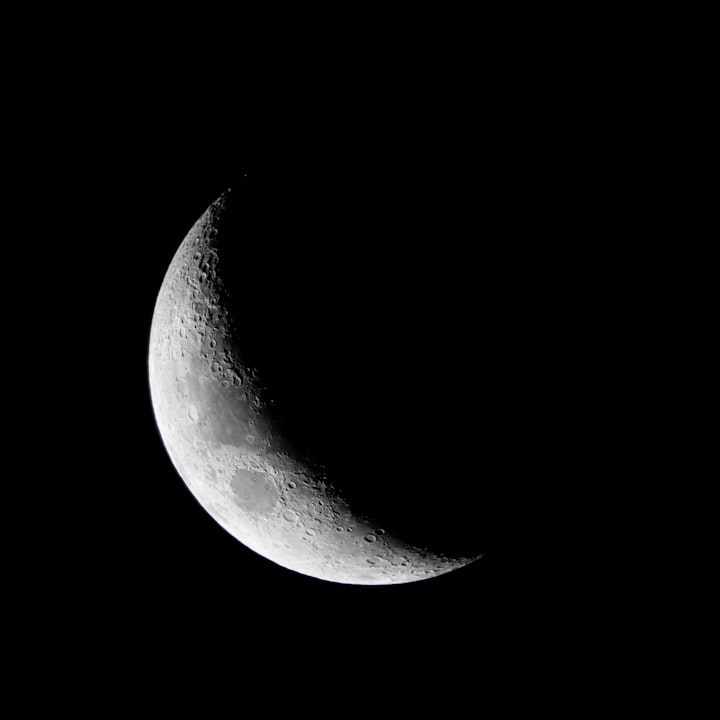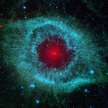Why Is Our Moon Called The Moon?
Have you ever wondered why the Earth’s only natural satellite is called the Moon? All the other moons in the Solar System have proper names, like Titan, Ganymede, Europa, Enceladus, and the list goes on.

British spelling.
<><><>
Our Moon.
In the Solar System, the total number of confirmed moons that orbit the planets is 288.
Mercury and Venus have no moons, and as you know, Earth has 1 moon, Mars has 2, Jupiter has 95, Saturn has 146, Uranus has 28, and Neptune, the most distant planet, has 16.
Dwarf planets can also have moons; Pluto has five moons, and surprisingly, many asteroids have moons. In 1993, the large asteroid Ida was found to have a tiny moon; it has been named Dactyl.
When our natural satellite was named “The Moon,” there was no need for a more specific name to differentiate it from other moons.
We never knew that other moons existed until Galileo discovered four moons in orbit around Jupiter; that discovery was made way back in 1610.

Image credit. Darkmoon_Art from Pixabay
I think the Italian name Luna or the Greek name Selene are better-sounding names for the moon, but that is just my opinion.
The Moon has been the Earth’s companion for roughly 4.5 billion years and is not much younger than the Earth itself.
The most accepted theory about why the Earth has a moon is that the Earth was impacted by another planet similar in size to Mars.
A vast amount of material was blasted out into space. The debris from the impact came together in orbit and eventually formed the moon.
The moon was a lot closer to our planet back then. It is suggested that it was orbiting between 20 and 30 thousand kilometres from the surface of the Earth; today, it travels around the Earth at a distance of 384,000 kilometres.
There was no life back then that could have looked up at the night sky, but just imagine how big the moon would have looked being so close to the Earth.
Even today, the Moon is slowly moving away from the Earth at 3.8 centimetres per year. It seems like a very short distance, but over millions or billions of years, the kilometres do add up.
Most of us will have witnessed a solar eclipse when the moon travels in front of the sun, and a few of us will have seen a total solar eclipse when the moon completely covers the sun. This is only possible because the sun and moon look similar in size when viewed from the earth's surface.

Image credit. Jongsun Lee on Unsplash
In roughly 600 million years or more, the Moon will be so far away from our planet that a total solar eclipse will be impossible. The moon will be visibly too small in the sky to completely block out the sun.
Without the Moon, a day on Earth would be roughly 12 hours, half as long as it is now. Over billions of years, the moon's gravitational force has slowed the Earth's rotation. Nights would be darker, and our tides would be much weaker.
Who knows, if there had been no moon, life might have taken a different evolutionary path, and we humans might have never existed.
As I write this article, my mind goes back to over 50 years ago. I remember looking up at the moon on the night of July 20th, 1969. I could hardly believe that two men were walking on its surface.
I feel so lucky to have been the age to witness and understand that great event, and I am so proud of the human race for their amazing achievement.
Between 1969 and 1972, the Apollo programme sent six manned missions to the moon. Altogether, twelve men landed and walked on its surface.
As of February 2024, four of those twelve astronauts who walked to the moon are still alive; they have an average age of 90 years old.
The end.
<><><>
You may find my easy-to-understand stories about the universe and life interesting and educational.
If you subscribe to me for free, you will see my latest stories. Regards.
About the Creator
A B Forbes
Someone with a lifelong passion for that gargantuan area we call the universe. I also write stories about life itself. Enjoy






Comments
There are no comments for this story
Be the first to respond and start the conversation.